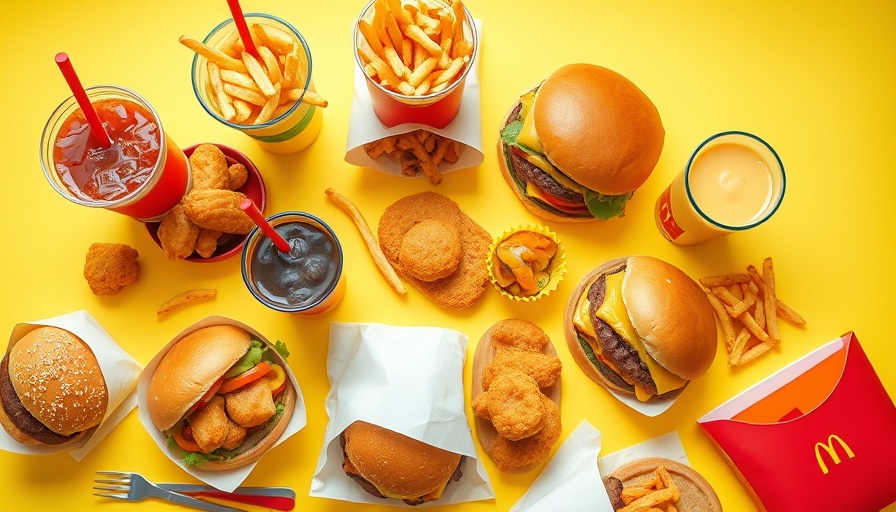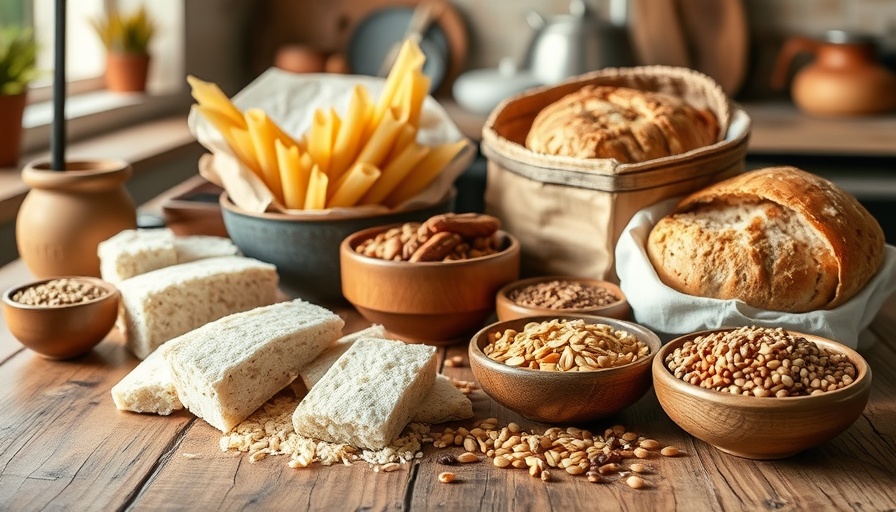
Understanding the Rise of Ultra-Processed Foods
In recent years, ultra-processed foods have infiltrated American grocery carts, accounting for nearly half of all purchases. This surge raises significant public health concerns, especially for those who prioritize fitness and overall well-being. But what exactly are ultra-processed foods, and why should we be cautious about including them in our diets?
Decoding Ultra-Processed Foods
Ultra-processed foods are defined as products that have been heavily industrialized, often containing ingredients you wouldn't typically find in a home kitchen. This category includes items like sugary drinks, boxed snacks, and ready-to-eat meals. Their appeal lies in convenience and taste; however, their high levels of sugar, unhealthy fats, and sodium can lead to various health issues.
Health Implications of Ultra-Processed Foods
Research highlights a correlation between the high consumption of ultra-processed foods and health problems such as obesity, diabetes, and heart disease. For men, particularly those aged 35-55, maintaining a balanced diet is crucial as metabolism starts to slow down and muscle mass decreases with age. Replacing nutritious meals with these processed options can undermine fitness goals and overall health.
Practical Tips to Navigate Grocery Aisles
Being aware of what to include in your grocery list is vital. Here are some practical tips for savvy grocery shopping:
- Read Labels: Familiarize yourself with ingredient lists, and opt for items with fewer processed ingredients.
- Favor Whole Foods: Choose fruits, vegetables, whole grains, and lean proteins over processed snacks and meals.
- Be Cautious With Convenience: While frozen meals can save time, make choices that emphasize whole ingredients.
Building a Healthy Relationship with Food
Transitioning away from ultra-processed foods doesn't mean sacrificing convenience. Preparing meals in advance or batch cooking can make healthier options more accessible during busy weekdays. It's about creating a healthy relationship with food that fuels your body rather than relying on items that might hinder your fitness journey.
Emotional Well-being and Food Choices
Food choice is not just a physical matter but also closely tied to emotional health. Many individuals gravitate toward ultra-processed foods for a quick energy boost or comfort. Understanding the emotions associated with eating can help us make better choices. Consider keeping healthy snacks on hand for those moments of craving.
Future Predictions: A Shift Towards Healthier Choices
As awareness grows around the impacts of ultra-processed foods, there is a predicted shift towards more health-conscious consumption patterns. Experts suggest this could lead to innovations in the food industry, with businesses prioritizing less processed, nutritional options. Being a part of this shift not only benefits your health but also supports a market for healthier meal options.
Men aged 35-55, especially those concerned about their health and fitness, need to closely monitor their dietary choices. Recognizing the prevalence and effects of ultra-processed foods is the first step in advocating for a healthier lifestyle.
As you pay attention to your food choices, remember that you have the power to create change—not just for yourself, but for the community as well by supporting local businesses promoting healthier options.
Take a moment today to reflect on your food choices and consider ways to swap out processed products for more wholesome alternatives. Small shifts can lead to significant changes in your health.
 Add Row
Add Row  Add
Add 




Write A Comment